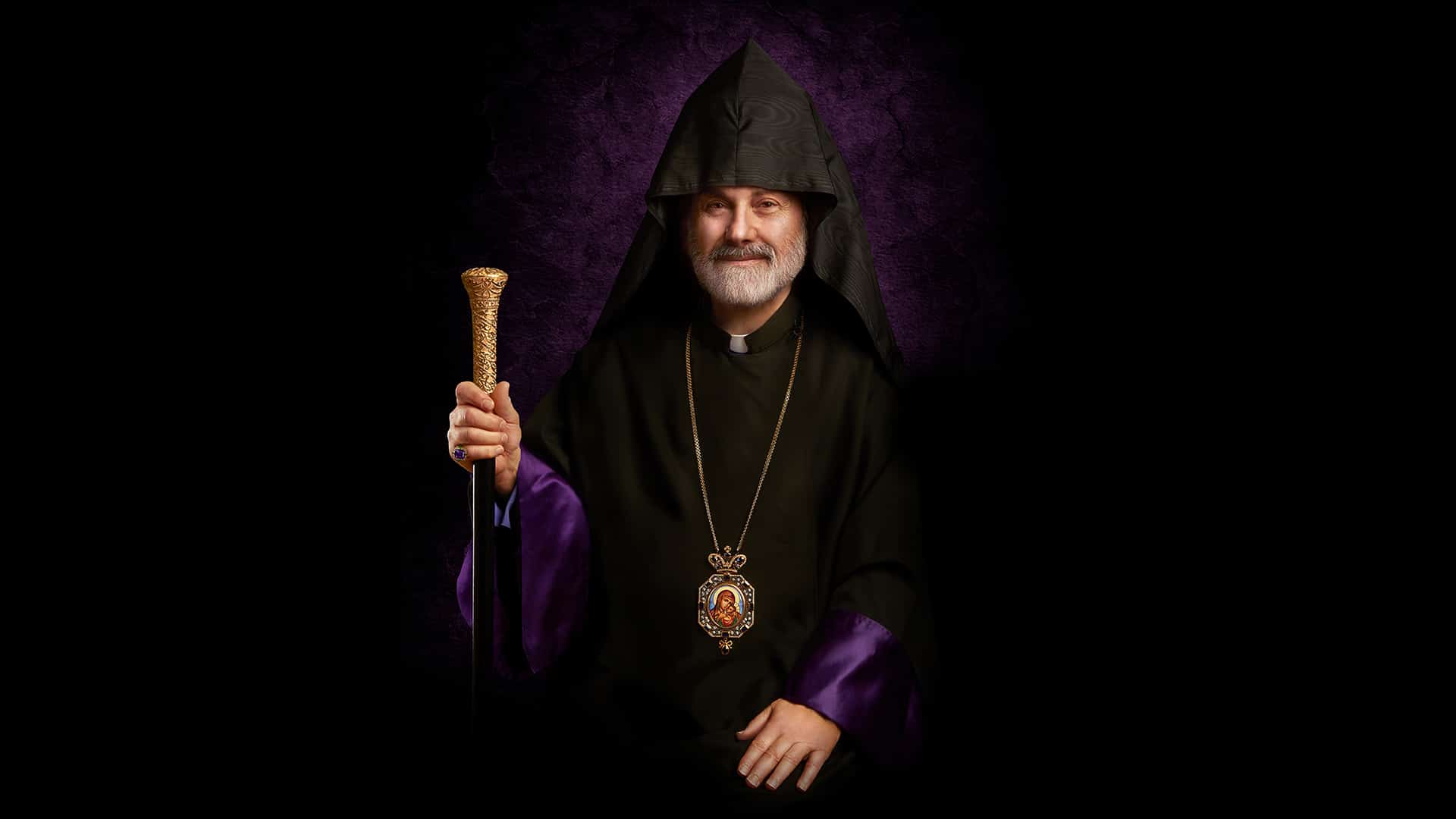A PROPHET IN HIS OWN LAND AND WORLD

The Prelate’s Message (May 30, 2021)
Today, the first Sunday following the feast of Pentecost, according to the Armenian Church calendar, is exceptionally dedicated to the remembrance of Prophet Elijah (which is also spelled Elias), one of the greatest prophets in the Old Testament, who unfortunately was regarded as a “persona non grata” by the royal family, King Ahab and Queen Jezebel, because of his firm obedience to God rather to Baal, a highly worshipped god in Middle Eastern societies as a fertility deity. Our Gospel reading is from Saint Luke 4:25-30. Jesus refers both to Prophet Elijah and his disciple Elisha within a very strange context.
Elijah, who was an unpopular prophet within his own community, was welcomed by a widow living in Zarephath, in Sidon, Phoenicia (modern Lebanon). Persecuted by his own people, upon God’s command, Elijah takes refuge at the widow’s house. When the only son of the widow dies and Elijah gives life to the dead, the mother confesses, “Now I know that you are a man of God, and that the word of the Lord in your mouth is truth.” (I King 17:24). On the other hand, Naaman was a well repudiated commander of King Aram who unfortunately was suffering from leprosy. Upon the humble suggestion of his Israelite maiden whom he had taken captive, Naaman visits Prophet Elisha with great hope to be healed. Contrary to his expectation, the prophet in a humiliating way sends a message to him to wash himself in the Jordan River to be cleansed from leprosy. The commander first gets angry but upon his servant’s request follows the Prophet’s order, and Lo! His flesh gets restored like that of a young boy. Naaman, in his own turn, confesses by saying, “Now I know that there is no God in all the earth except in Israel” (2 Kings 5:1-19).
We learn two important messages from our today’s Gospel reading.
- Our Lord Jesus Christ frequently uses biblical cross references in His teaching, emphasizing the essential unity of the Word of God between both Testaments. Without having familiarity with the Old Testament, one can’t fully understand most of the messages delivered by our Lord, as today’s scriptural reading indicates. Moreover, the sacred History of the Redemption, from the birth of Emmanuel from a virgin to the Passion, once it is cut off from prophecies, would lose its goal, as Jesus repeatedly emphasized that He came to fulfill the Books (Jn 17:12). Marcion, a second century Christian sectarian, along with other New Testament books, rejected the entire Old Testament. Such attempts mislead the believers and deviate us from understanding the Providential care from the Creation to the Day of Judgment and beyond.
- Both references to the Old Testament were not welcomed by the audience for they were a clear rebuke addressed to them; hence, they tried to kill Him. The Old Testament is full of the ungratefulness of the chosen people. Isaiah’s opening harsh message is quite remarkable in this regard, when he says, “Hear, O heavens, and listen, O earth…The ox knows its owner, and the donkey its master’s crib; but Israel does not know, my people do not understand.” (Is 1:3). The word of the Lord through the Prophet Malachi is more bitter when He says, “I have no pleasure in you, says the Lord of Hosts, and I will not accept offering from your hands. For from the rising of the sun to its setting my name is great among the nations, and in every place, incense is offered to my name, and a pure offering, for my name is great among the nations, says the Lord of Hosts.” (Mal 1:10-11). Jesus’s message is a warning that a shift is at door, the Good News will be more welcomed by Nations rather than the chosen people, as John the Baptist also had warned them by saying, “Do not begin to say to yourselves, ‘We have Abraham as our ancestor’; for I tell you, God is able from these stones to raise up children to Abraham” (Lk 3:8).As much as Jesus was addressing to His audience, we, Christians, also should be vigilant in order not to be disgraced, but rather humbly and faithfully to live our lives imitating Him who took upon Himself our sinful nature to purify us and make us as white as the snow (Is 1:18).
It is indeed a blessing that this weekend we are celebrating a national feast known as Memorial Day, when we offer prayer for the souls of our departed ones. It is indeed a beautiful coincidence to celebrate the feast of the Prophet Elijah. Actually, in our Requiem Service we sing a special song, “In heavenly Jerusalem, where Enoch and Elijah like doves are splendid…” We are aware from the Old Testament that both Enoch and Elijah, two righteous persons were privileged not to experience death (Gen 5:24; 2 Kings 2:11). Most especially, Elijah’s appearance with Moses next to Jesus during our Lord’s Transfiguration inspires us more firmly to believe that after this earthly life our souls continue their journey to be with God and in God.
Let us therefore faithfully and consciously enjoy all the bounties granted to us since the Creation, and thankfully praise the Almighty Lord for His blessings in Time and beyond. Amen.
ARCHBISHOP ANOUSHAVAN
Prelate
